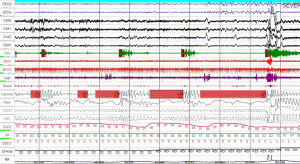What is it?
When sleep apnea occurs, the oxygen level in the blood can decrease. This may cause damage to the cardiovascular system over time. Sleep apnea also leads to constant arousals. While the sufferer may not remember awakening, arousals during the night interrupt normal sleep structures and lead to excessive daytime sleepiness.
Hypopnea, a reduction in airflow, frequently accompanies sleep apnea. As with apnea, hypopnea may result in a decrease in the oxygen level and arousal from sleep. These arousals, which may occur hundreds of times during the night, often render the sufferer too tired to function normally during the day.
Risks and symptoms
When left untreated, sleep apnea may result in high blood pressure and other cardiovascular diseases such as heart attack and stroke. People with this condition may also suffer from morning headaches, trouble with memory, feelings of depression, reflux, frequent urination, and impotence. Sleep apnea sufferers often fall asleep at inappropriate times, which may lead to poor job performance and motor vehicle accidents.
Risk factors for sleep apnea include family history of sleep apnea, excess body weight, a large neck, a recessed chin, abnormalities in the structure of the upper airway, smoking, and alcohol use.
Diabetes and sleep apnea frequently co-exist, since obesity is a risk factor common to both. Snoring and sleep apnea are implicated in the development of glucose intolerance and/or insulin resistance.
Treatment
If you have sleep apnea, your doctor may prescribe continuous positive airway pressure (CPAP) therapy to treat your apnea. A mask is worn over your nose, and a machine that delivers pressure blows into your airway and keeps it from collapsing. This airway collapse is what causes sleep apnea. When correctly and consistently used, CPAP therapy will stop your sleep apnea and stop your snoring. You will begin to sleep normally again, feel rested upon awakening and have a better quality of life. Milder cases of sleep apnea may sometimes be treated surgically or with oral appliances.

